WHAT IS THE HUMAN-ANIMAL BOND?
This is the definition given by Purdue University's Center for the Human-Animal Bond.
The Human-Animal Bond is the dynamic relationship between people and animals in that each influences the psychological and physiological state of the other. Human-animal interaction has profound physiological consequences. People in contact with animals experience a decrease in blood pressure, reduced anxiety, and a general feeling of well being. By observing the behavior of animals, children learn to be more nurturing and perhaps better parents to their own children. The therapeutic value of animals for socially isolated individuals in nursing homes, hospitals, hospices, and prisons has been documented. People in the presence of animals are often perceived to be more happy and healthy.
Human-Animal Interactions - Science based terminology
Here are a couple of simple definitions to ensure we are all on the same page:
Bond: Mixed social groups being together and doing the same activity, in this case Humans & Dogs.
Love: A human emotion that we use to describe feelings of connectivity to another being.
Attachment: Observable traits that other humans can observe in a mixed social group that has a well developed bond.
The Focus of the Building a Better Bond Workshop
The overall goal of this workshop is to help develop the relationship between a human and their dog that is beneficial to both participants by fostering a teamwork based approach which thrives by using cooperation to achieve common goals. All lessons and activities will be taught using Force Free/Aversive Free methods, encouraging positive reinforcement throughout the learning process.
We can safely say that everyone in the BBB Workshop LOVES their dog! I have a blog post available if you would like to learn more about how dogs show us love. http://www.yooperpaws.com/2021/10/how-do-dogs-show-love.html Yet we all feel like we can benefit from increasing our bond with our dog, or we wouldn’t be here. So here are a few things to keep in mind as you participate in the weekly activities in this workshop:
Every action or interaction with your dog has an effect, it can be beneficial or harmful. This goes for training sessions, games, snuggle time on the couch, etc. It’s up the the human to make the commitment to providing more beneficial interactions then harmful interactions because the dog has very little freedom or choice in daily activities.
Teamwork is an evolutionary process that involves history, is influenced by the economy or value, and driven by the culture or rules that you live by. In order to have true teamwork, all participants must receive a benefit of some sorts from the activities that you do together.
Cooperation in activities is essential to achieve common goals as a team. All common goals can be broken down into one of these categories; games/fun, learning activities, being safe together, defending or taking care of each other.
An effective Human/Companion Animal Partnership needs to be practiced every day! The activities in the workshop are designed to help your relationship evolve to one based on companionship, partnership, and communication. We urge you to spend 5 minutes a day, every day doing the topic of the week in some capacity. Since our week officially starts on Monday, we urge you to think of this day as a “Back to Basics” activity, where you focus more on the companionship aspect of simply doing the activity together. Throughout the week, you will receive various tips and tricks from the staff and workshop participants to help you raise the level of training toward your end goal for that topic. This means if the activity is brand new to you, your end goal may be lower than others in the workshop or if the activity is one you’ve previously had success with, you may be able to push your end goal for that week slightly higher. No matter what your end goal is for any given week, we encourage you to post your dog’s accomplishments in the Facebook Group!
This workshop will also focus on how pet related activities can impact a human to create an
environment that fosters good mental health. There has been a ton of research that shows how pets are good for our mental health. The problem is that is not always true! If you, the human, are feeling frustrated at the behaviors your dog is offering, you're not going to be in a good mental health place. It’s not the act of simply owning the pet that fosters good mental health, but the activities we do with our pets often have a huge impact on our mental health. Humans have a biological need for social interactions whether we get that from other humans or animals depends on which has more value to us as an individual. We’ve all seen the common memes about liking our dog more than liking most people. That meme is meant to be a joke, but it’s founded in scientific research to be true for some people. With the need for social companionship, we also have a need for social buffering which leads to protecting ourselves socially by interacting more frequently with people or animals who enjoy the same activities and values we enjoy. That need to be social also accompanies a need to be accepted into the social groups we find valuable. This is why the workshop will have a Kindness Code that will be outlined and agreed upon before the workshop begins.By participating in the social aspect of the workshop, you will help foster your need as a human to have companionship with other humans with shared goals. By posting your accomplishments, focusing on the improvement you’ve made no matter how big or how small, you will naturally develop communication skills that will improve your relationship within the group which also naturally increases the pleasure you receive within the workshop. This leads to a greater attachment or feeling of joy, which aids in cooperation, which helps to control your emotions, allows for sharing of resources, and helps the act of celebrating to become a natural behavior that is important for human success. This attachment within the workshop will also increase the attachment you feel with your dog making you both aware of each other in all environments, both physically and emotionally. Now we know this sounds like a big process which includes a ton of hard work. So we ask that you trust the process being founded on force free methods and scientific evidence that is proven to help people learn more effectively. As the human part of the team becomes more involved in partnership or teamwork based sessions, you are also building a history of success that will impact your relationship or bond with your dog.
The Building a Better Bond Kindness Code
As a group we all come from a wide diversity of past experiences. We must recognize that dog training is not a one size fits all approach.
Some of us may have limited physical abilities, energy levels, educational skills, and various learning methods.
By participating in the social part of the workshop, we all will need to agree to recognize and embrace the differences we have in training processes, the choice of training tools, and the end goals for our individual team.
By understanding our differences, together we can create a place where everyone can flourish and be successful.
The Admin & Support Staff team will strive to be a pillar of strength, working to help participants overcome any challenges and finding a way for each team to be successful!
Together we can build momentum for a community driven by supportiveness & helpfulness, where everyone can feel safe, valued, and appreciated.
And if you need to join the Facebook Group here is that link: www.facebook.com/groups/buildingabetterbond/
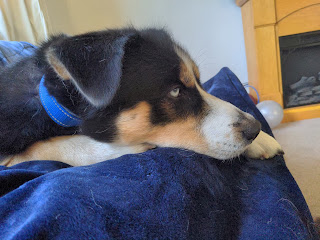
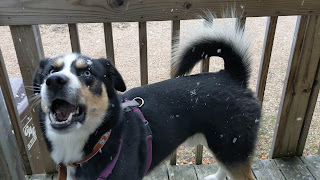
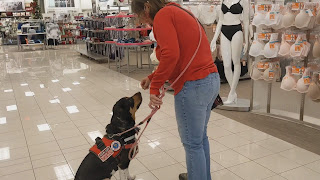
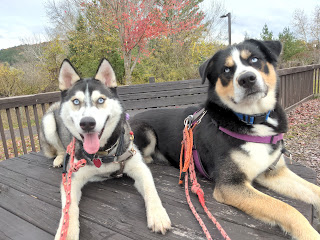

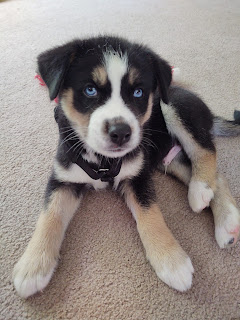
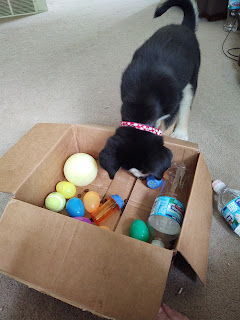
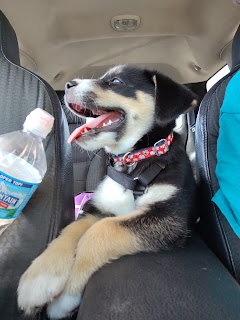
_20250507_102709_0005.png)

